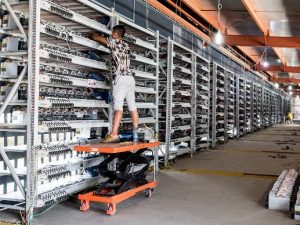Lauren, Year 13, discusses whether the Great Depression influenced the response to the 2008 Financial Crisis.
During the Great Depression, wages were cut for workers which led to a reduction in demand. This stemmed in the bankruptcy of thousands, as the stock market went into free fall after the Wall Street Crash. Between 1929 and 1932 more than 100,000 businesses went bankrupt, and around 11,000 banks stopped trading. When these banks shut down, savers lost all of their money so they could no longer buy consumer goods. This reduction in demand resulted in the redundancy of many workers, ultimately creating a further decline in the level of aggregate demand. Thus, the economy entered a downward spiral.
President Hoover interpreted the Depression as hypothetical notion, a normal business turndown, rather than a solidified and evidenced occurrence. Consequently, when an attempt to take action was made it was a little too late. Following the Great Depression, regulations were altered, and economic policies restructured all across the world. The economic system was redesigned to avoid a repeat of this disaster and the levels of government spending were increased.
After the Great Depression, it was often assumed that there would not be another economic downturn of such major proportions as it was believed that the lessons that had been learned then could be applied to any future crisis, protecting the future from such economic turmoil. However, perhaps the lessons learned were not enough to ultimately fend off the Financial Crisis of 2008 in which there had been a rise of non-bank institutions which were not regulated to the same extent as commercial banks, concerning loans.
Several measures were put into place in order to alleviate the effects of the crisis. In the USA, loans from the Federal Reserve were enforced, and the US even tried a Keynesian fiscal stimulus in early 2008 to ‘jump-start’ the economy, but this wasn’t successful enough because the stimulus was too small, at only about 1% of GDP.
A matter of interest to many economists is how the crisis was dealt with in the UK under the Labour government, because they continued to spend significantly in the immediate aftermath of the Financial Crisis. This helped to ease the initial impact because it reduced the economic downturn, but the rate at which the national debt was shooting up was dangerous.

The coalition government slashed public spending after 2010, damaging public services and holding back economic recovery after the crisis. Although it would have been wrong to ignore the huge government deficit inherited from Labour, it could be suggested that Osborne should not have cut spending on infrastructure and capital to such a degree, allowing the UK to invest to boost productivity.
In conclusion, had the enormous intervention by governments not happened, the impact of the Financial Crisis would have been significantly greater. This means that it can be argued that the Great Depression did, to some extent, influence the response to the 2008 Financial Crisis as it persuaded governments to intervene quickly and at great expense in order to avoid a repeat of events in the 1930s. However, it can be argued that these policies were not as successful as envisaged due to the complexity of new financial instruments.






 Distributed systems such as Bitcoin’s involve a negative externality that causes over investment in computer hardware as the expected marginal revenue from the individual miners is increasing with the amount of computing power that they individually have. Not only does this increase their own marginal cost but it increases the competition within the system and thus the cost is also increasing across the entire network. “Cetirus paribus” economic theory would suggest that in equilibrium all miners are inefficiently investing in hardware while receiving the same revenue that they would have had they not invested in the extra computing power. This behaviour is irrational as it is increasing the computing power across the entire network making it harder for them to succeed individually.
Distributed systems such as Bitcoin’s involve a negative externality that causes over investment in computer hardware as the expected marginal revenue from the individual miners is increasing with the amount of computing power that they individually have. Not only does this increase their own marginal cost but it increases the competition within the system and thus the cost is also increasing across the entire network. “Cetirus paribus” economic theory would suggest that in equilibrium all miners are inefficiently investing in hardware while receiving the same revenue that they would have had they not invested in the extra computing power. This behaviour is irrational as it is increasing the computing power across the entire network making it harder for them to succeed individually.